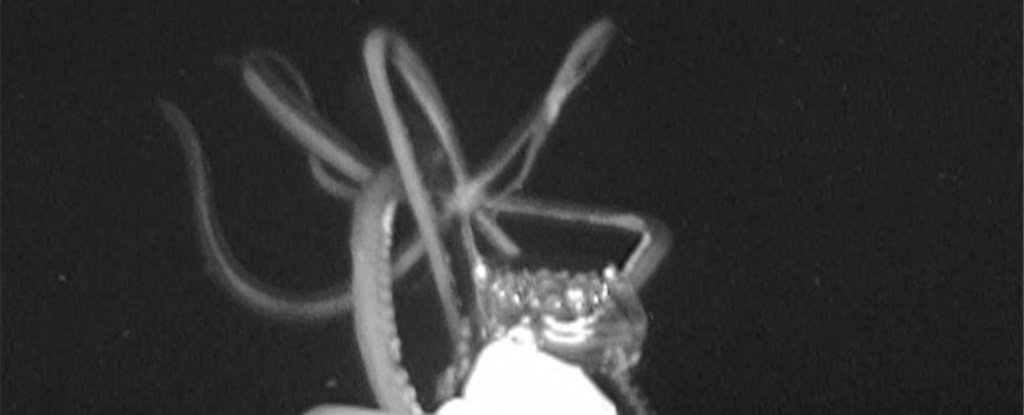In the pitch
black waters 759 meters (2500 feet) below the surface of the Gulf of Mexico, a
thin, undulating arm emerges from the gloom.
Suddenly, it
splits, and what was a lone, curious appendage is a writhing bouquet of
tentacles until, finally, an honest-to-God giant squid blooms from the darkness
and attacks.
Then, the
beast vanishes back into the deep as abruptly as it emerged.
For the
first time, a living giant squid had been filmed in US waters. The video was
captured by a team of researchers on an expedition funded by the National
Oceanic and Atmospheric Administration who were studying the impacts of light
deprivation on deep sea creatures living in the "midnight zone,"
3,280 feet (1000 meters) below the surface.
To bring the
historic image to the world, the 23-person crew had to use a specialized probe,
get lucky enough to lure the elusive squid to a camera and find it among hours
and hours of video footage.
Then, the
downloaded video had to survive a sudden lightning strike to the metal research
vessel that threatened scientists' computers. On top of everything else, a
water spout formed suddenly off the port bow.
Edith
Widder, one of the leaders of the expedition, described the ordeal as "one
of the more amazing days at sea I've ever had."
Speaking on
Sunday from the dock where the Point Sur research vessel had just docked after
two weeks at sea, Widder, founder of the Ocean Research & Conservation
Association, recounted the dramatic events surrounding the discovery.

Comments
Post a Comment